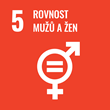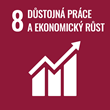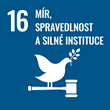Informace o projektu
Modern Greek as a Standard Average European language
(Modern Greek as a SAE language)
- Kód projektu
- MUNI/R/1179/2020
- Období řešení
- 1/2021 - 12/2022
- Investor / Programový rámec / typ projektu
-
Masarykova univerzita
- Grantová agentura MU
- CAREER RESTART
- Fakulta / Pracoviště MU
- Filozofická fakulta
Since the 1990s, the theory of the existence of the Standard Average European linguistic area (SAE), based on shared, mostly contact-induced morphosyntactic features in several European languages, has been gaining in popularity among linguists. A huge number of studies have been devoted to the research into the degree of pertaining of individual European languages to the SAE area. However, the position of Modern Greek in it has been largely neglected. The present project endeavours to change this by a detailed investigation of Modern Greek language with respect to the presence, historical development, and current state of linguistic features commonly accepted as a key characteristics of the SAE area.
The applicant already dealt with the mentioned topic before her maternity leave in an invited conference lecture in 2016 (published in 2020) which addressed two of the features in Modern Greek, the ‘have’ perfect and the relative clauses with relative pronouns. The aim of the project is to continue in this direction of research by discussing the rest of the features (definite and indefinite articles, participial passive, dative external possessors, relative-based equative constructions, and intensifier-reflexive differentiation). The micro-orientation approach will be applied, comprising both Modern Greek standard language and individual Modern Greek dialects. The effort will result in a comprehensive description and evaluation of Modern Greek from the perspective of SAE.
The research will be conducted within the “Modern Greek Language and Literature” unit of the Department of Classical Studies, Faculty of Arts. At present, the team is mostly oriented on Modern Greek literature. The reinvolvement of the linguistic research would balance the team to the extent that both aspects of traditional philological research – literature and language – would be present and the representatives of them could co-operate to perform a holistic approach to Modern Greek.
The potential of the research is even greater as it will invite attention of scholars from adjacent disciplines facing the similar research problems, such as Balkan linguistics and language contact studies in general. Applying this broader perspective can eventually lead to the formation of an extended team beyond the scope of “Modern Greek Language and Literature unit”.
Cíle udržitelného rozvoje
Masarykova univerzita se hlásí k cílům udržitelného rozvoje OSN, jejichž záměrem je do roku 2030 zlepšit podmínky a kvalitu života na naší planetě.
Publikace
Počet publikací: 6
2022
-
Řečtina v jazykových svazech : historiografické a metodologické poznámky
Neograeca Bohemica, rok: 2022, ročník: 22, vydání: 1, DOI
-
The position of Greek in Standard Average European Sprachbund
Rok: 2022, druh: Další prezentace na konferencích
-
Thomason, Sarah G. Eisagogi sti glossiki epafi. Metafrasi Nikos Liosis. Thessaloniki: Aristoteleio Panepistimio Thessalonikis, Institouto Neoellinikon Spoudon, 2019. (recenze)
Rok: 2022, druh: Recenze
2021
-
Dariya Rafiyenko–Ilja A. Seržant (eds.), Postclassical Greek: Contemporary Approaches to Philology and Linguistics (= Trends in Linguistics. Studies and Monographs, 335) De Gruyter Mouton: Berlin–Boston 2020, 339 p., ISBN 978-3-11-067672-3 (recenze)
Rok: 2021, druh: Recenze
-
Negace v řečtině: záporová shoda jako areálový rys
Rok: 2021, druh: Vyžádané přednášky
-
Řečtina a standardní průměrná evropština: otázky historické interpretace
Rok: 2021, druh: Další prezentace na konferencích


